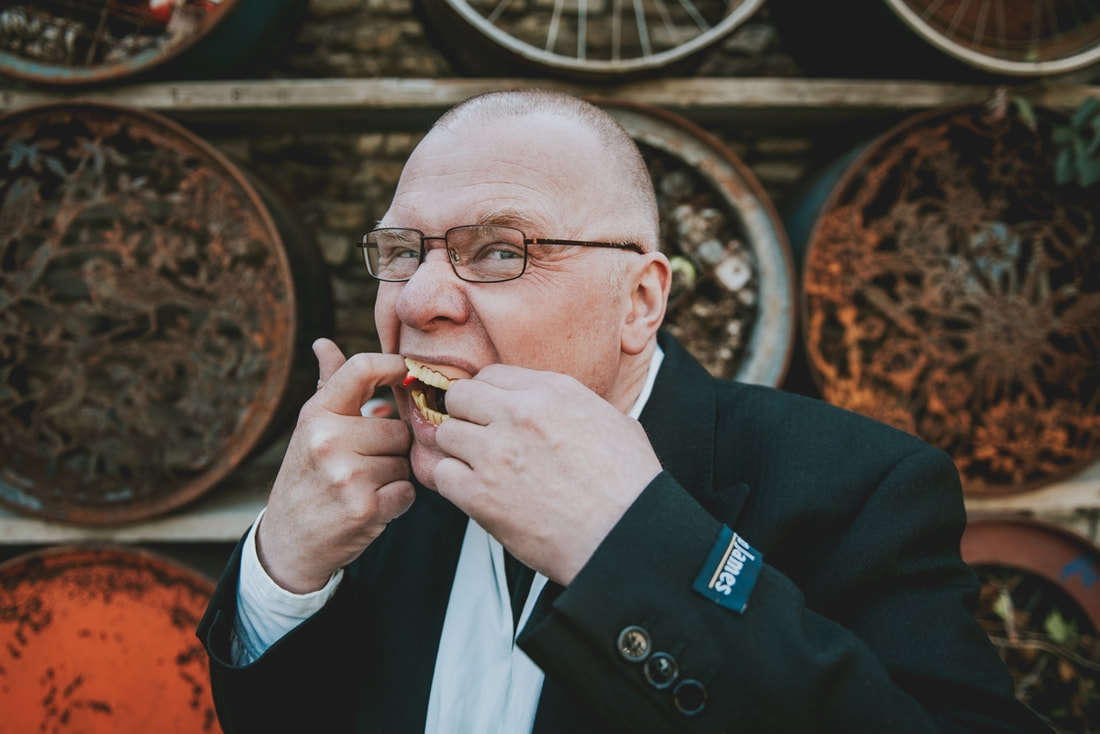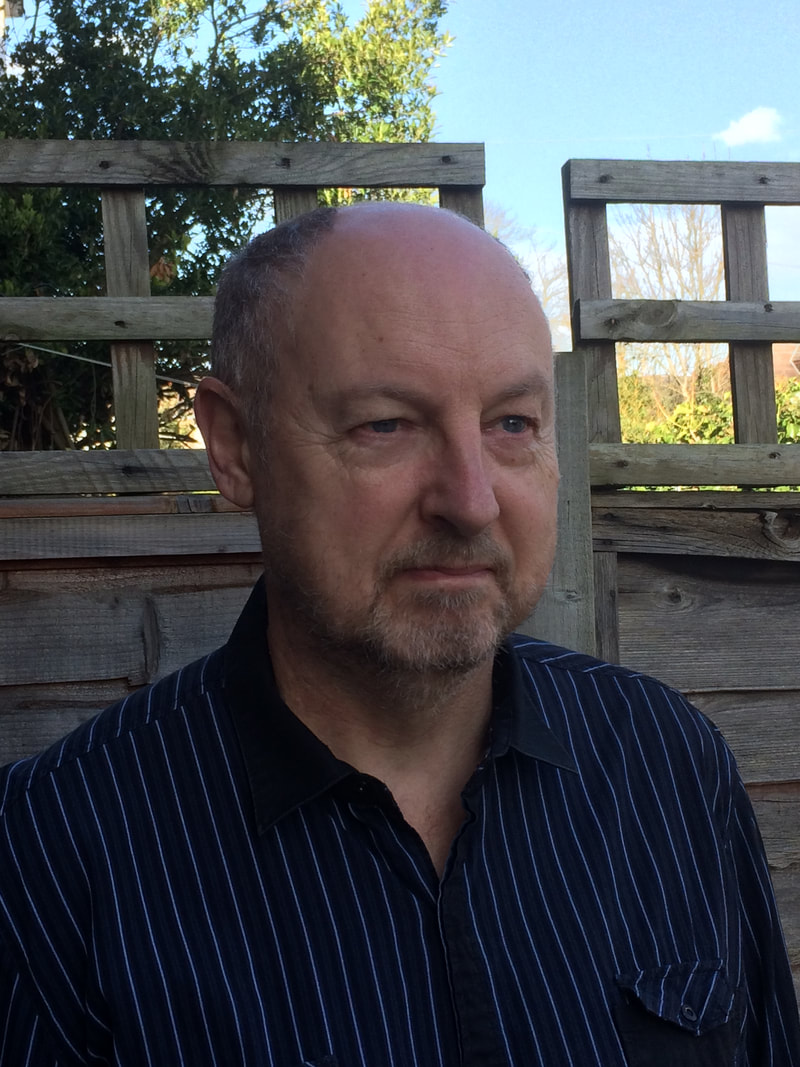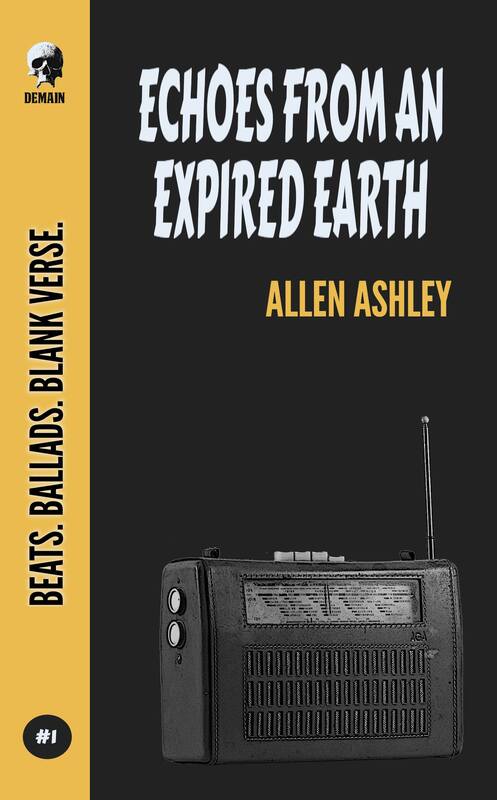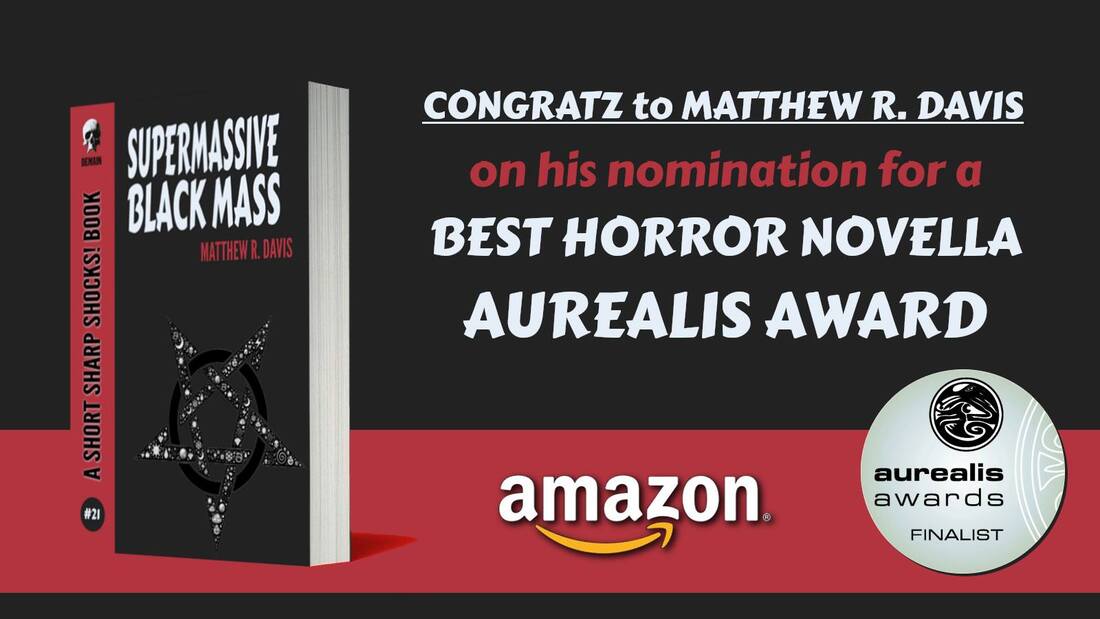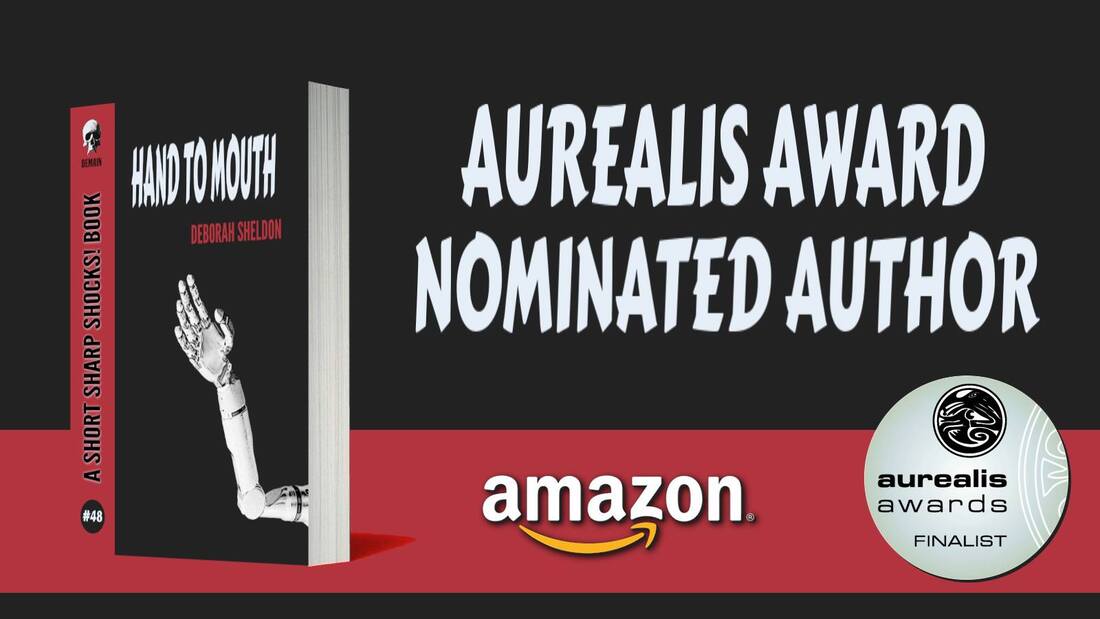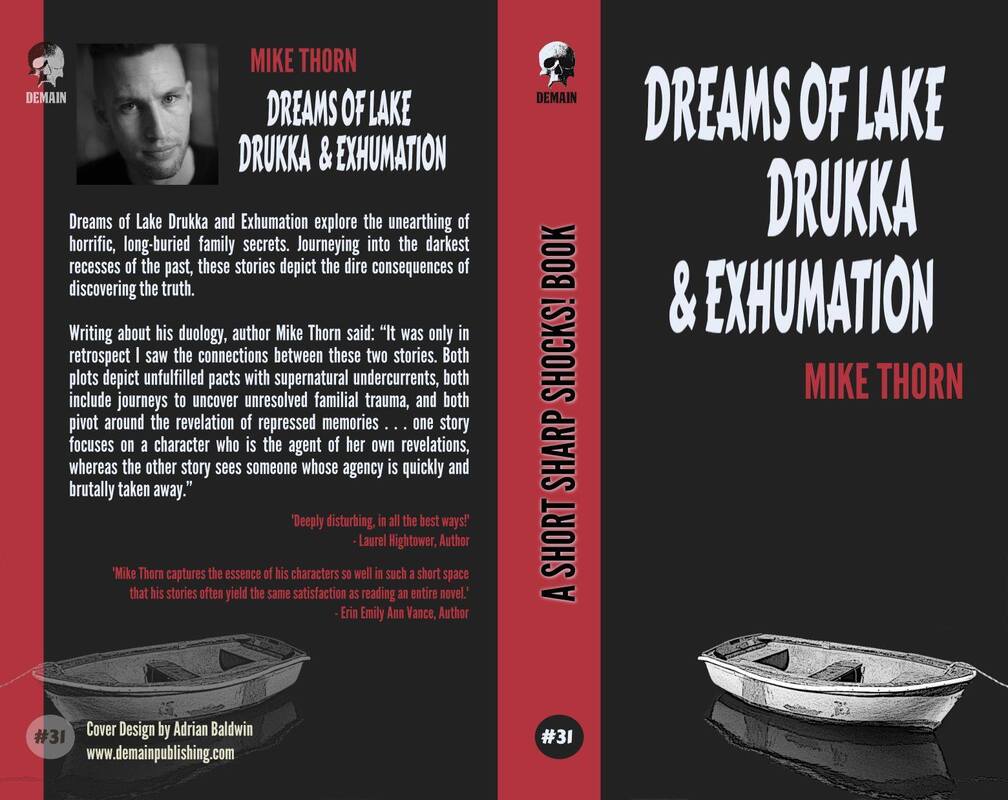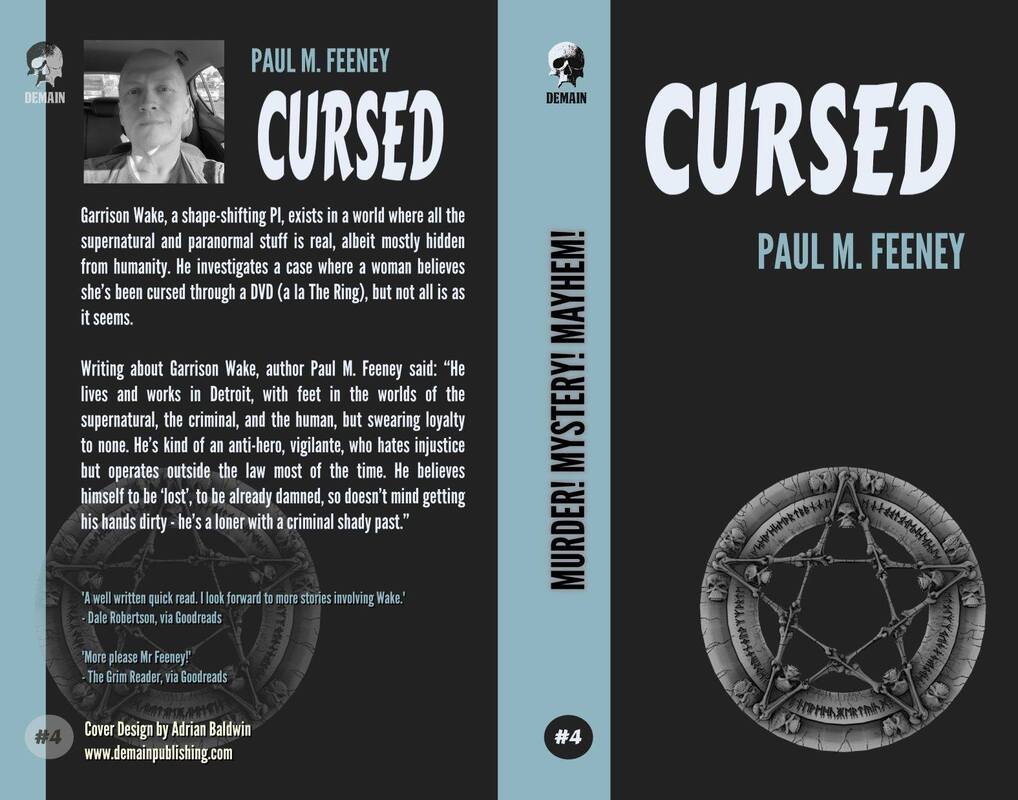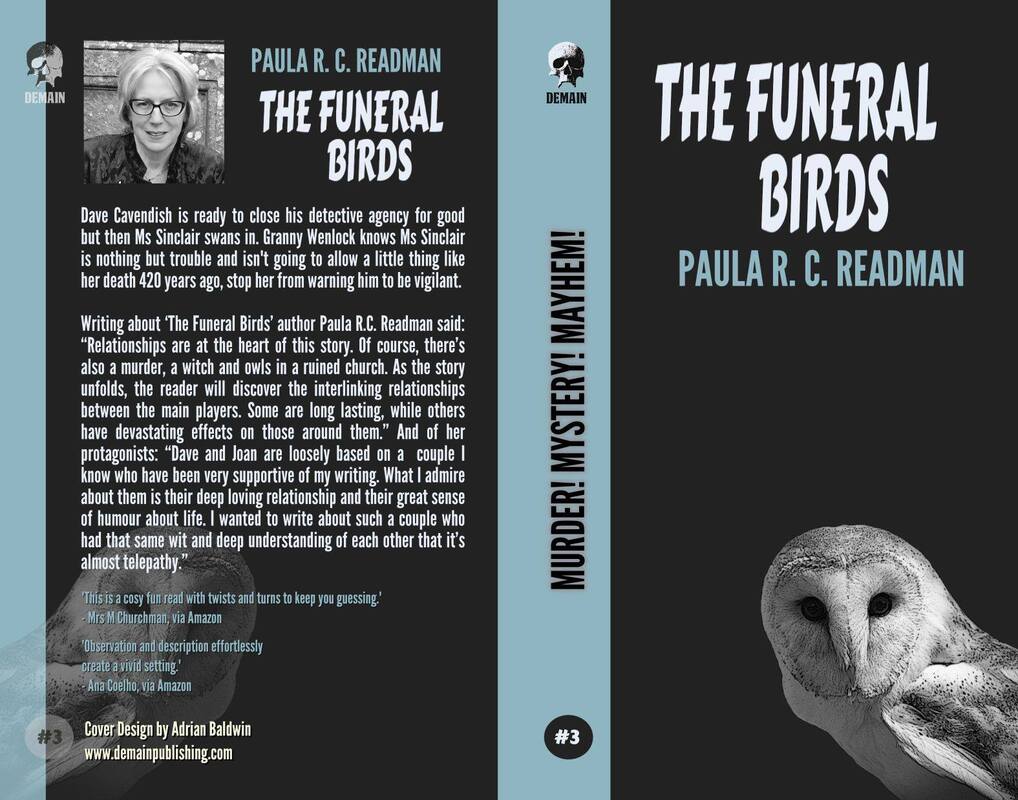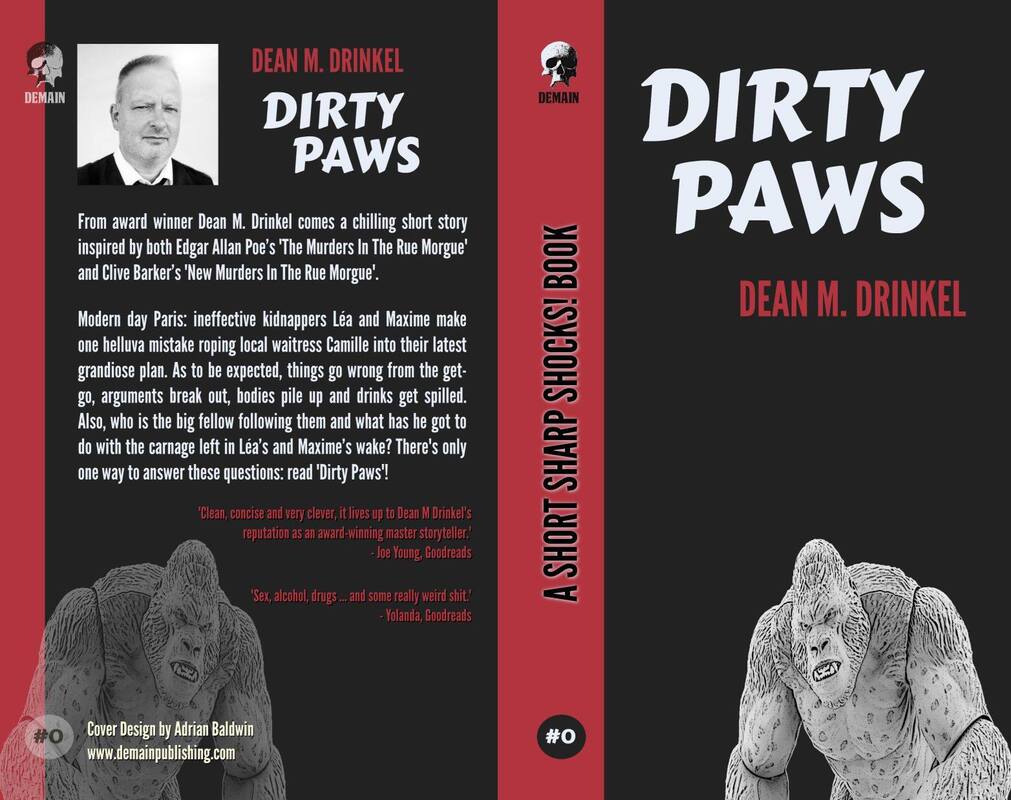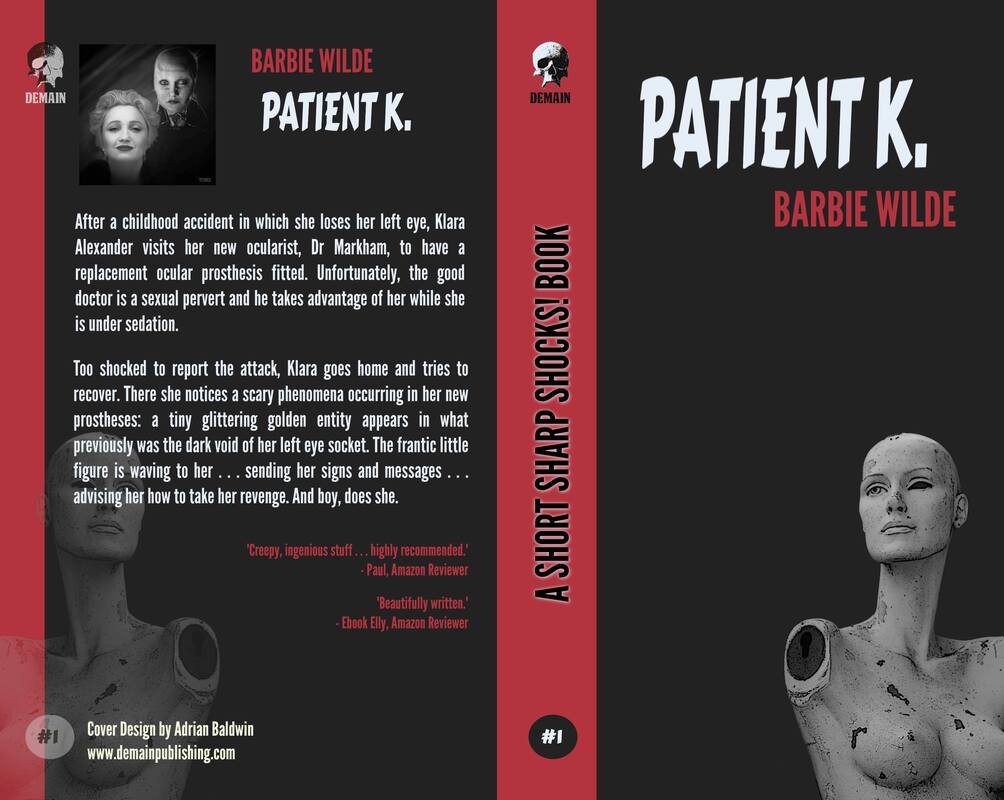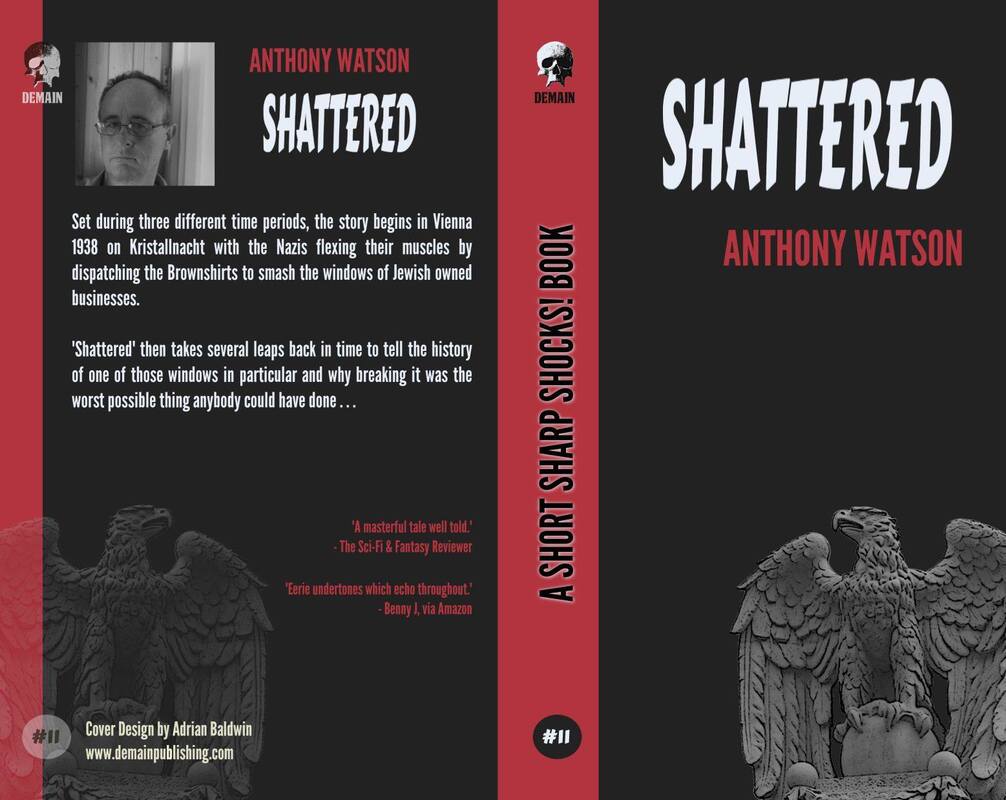|
|
|
The second release in DEMAIN’s Beats! Ballads! Blank Verse! Series is Grave Goods by Cardinal Cox. The collection is published as an ebook on the 24th of April via Amazon. A couple of weeks before the ‘lock down’ the Cardinal and Dean talked about it.
DEMAIN PUBLISHING: Welcome Cardinal, for those that don’t know you – please tell us a little about yourself, do you come from a literary background? CARDINAL COX: Not particularly, my parents had books and my mother reads a lot now she has the time. I got books passed down to me from my elder brothers. A great-uncle emigrated to South Africa in 1875 and wrote his memoirs later in life. The manuscript circulated round branches of the family and I did a show based on his very Allan Quatermain-like adventures (hunting, fighting in the Zulu wars, prospecting for gold, being taught muti by a witch-doctor, etc.) for a while. DP: That’s amazing, I wish I’d seen that. As a child then did you have access to poetry? CC: I remember a book called something like The Puffin book of Magical Verse which hade poems by Walter de la Mare, Charles Causley, Aleister Crowley, etc. which was a fine grounding in genre poetry. Later I would find poems by Edwin Morgan or Brian Aldiss included in SF anthologies. To me that legitimised poetry as a genre form. DP: Without a doubt…Aleister Crowley’s work in a Puffin book – ha ha ! Excellent, I’ll have to do a search for that…how did you get started in poetry then? CC: My mates and I had a band at school, so I wrote (terrible) songs for them. The guitarists left but the drummer got a computer that could produce music-loops. That became The Sonic Energy Authority that two or three sf authors slipped mentions of into their novels (favourite is a serial killer released from prison wearing a band t-shirt). Not everything became a song, so some poems got sent to small-press magazines. DP: Would you say you find writing poetry easy? CC: I find inspiration easy. Developing that idea into some finished work (though is any poem ever truly finished or is it just waiting more editing?) can take time. With inspiration, when I got the post of Poet-in-Residence with The Dracula Society they said they’d like one poem per quarterly issue of the magazine they produced, over two years. So 8 poems. I thought, from my experiences of being P-in-R for the cemetery and the church that I could probably manage 1 a month. So 24 poems. My time there coincided with things like Christopher Lee’s death and the theft of Murnau’s skull and suddenly I was swamped with inspiration. I had to get all these poems scribbled down in case the inspiration dried up. And as I wrote I realised various back-stories were emerging from the murk. There were a few ideas that came but another idea came along so quickly that it just never got used. That is where the ‘Fifty Pieces’ in Grave Goods came from. DP: Ah, I see now, that makes sense…so, does writing poetry energise or exhaust you? CC: I know it exhausts my audience. One gig of my ‘High Stakes’ show (also drawn from my time with The Dracula Society) a couple fell asleep in the second row. I figured it was a warm evening, they’d had a glass of wine, I could understand it. They’d bought their ticket, they weren’t snoring… DP: Ha ha nice one! Do you do much research when writing your poems? CC: Depends on the poem. If you need facts in it (names of blood vessels to and from the heart or dates of a battle, say) then they’d best be right unless you want to have to say “It’s set in an alternate universe…” for years to come. DP: True…true…how do you begin a poem? CC: It usually starts with a core idea like a misheard phrase, a reply to something or a juxtaposition. Sometimes it starts though with the words, “We have a budget and would like to commission you to write…” That can be interesting as suddenly you have to write something you otherwise wouldn’t have. DP: Indeed! So how do your poems develop? Do you have a specific writing method and do you show them to anyone as you draft? CC: I often start with a spidergram so I’m not putting the ideas down in a fixed order. If it’s a villanelle it’s two columns trying to write lines ending with the necessary rhymes. Then I start crafting the poem into an order. Then the lines start to be re-written to try and hang together as a whole. This is all done long hand in different coloured inks for different drafts and for editing. They tend not to be shown around in rough draft form but when put on-line or sent to an editor if someone says “Don’t you think…” or “Couldn’t you instead…” I’ll often go with this idea. Fresh pairs of eyes see errors my own are blind to. DP: That’s brave of you – I know a lot of writers who wouldn’t dare put their work out there until they were a hundred per cent happy and even then wouldn’t be happy receiving criticism haha but horses for courses I suppose. Would you say that poetry has a purpose… CC: If poetry has a purpose it is to be the poem that the poet wanted to write. Individual poems can have different purposes (entertain, educate, show what an awfully cleaver person the poet is, etc.) and that’s fine. There’s no right or wrong there. Different poets will have different purposes at different times. DP: I’ll go with that…who are your favourite poets (living / dead)? Are you reading any poetry at the moment – if so what? CC: Edwin Morgan, Benjamin Zephaniah, Attila the Stockbroker and whoever I heard give a reading last week. DP: Again, some great names there though I will admit I haven’t heard of Attila before! Have you ever been on a poetry pilgrimage? CC: Not really. Have I? I once had to walk the last few miles down country lanes to get to a local(ish) T S Eliot Festival at Little Gidding, I felt more like a pedlar with my pack on my back rather than a pilgrim. And when I got there the people who had driven past me in their cars said “Oh, we did wonder if you were coming here…” but none of them offered me a lift. I’ve been going to the John Clare Festival in Helpston for years, or rather, I’ve been going to the village while the festival is on but until last year (I was part of a reading) I’d been enjoying the cream teas the WI make but never went to any actual events. So that was more of a cake pilgrimage rather than a poetry pilgrimage, I suspect. DP: Actually I could do with a ‘cake pilgrimage’ right about now – especially if cheesecakes are involved…do you read poetry regularly? CC: Not as much as I would like, buying poetry is easier (after hearing someone present their stuff) and then I try to remember to pack the book for my daily commute by bus. DP: And how did you first get started? CC: I think the local newspaper ran a story about ‘Man hopes to publish poetry anthology for charity’. Before that I might have had some verse printed in a music fanzine, Falling and Laughing? (from Scotland), 1980 something or other. DP: Do you manage to get out there and meet your readers? CC: I don’t enjoy giving readings or doing my show as much as I know other poets do. It’s not nerves, I just get imposter syndrome and think someone will point out I have no poetry clothes on. I enjoy meeting readers but I want to find out what they are writing. DP: That’s interesting. Last year I did a reading of one of my own stories at a spoken word /music festival which I quite enjoyed and I did say I’d be up for doing some more…but I know when I get up on the stage or in front of a load of people I start wondering why I put myself through the pain ha ha – in front of a load of strangers singing at karaoke, no worries at all – very odd…what’s the best experience you’ve had through your poetry? CC: Years ago there was a Radio 4 programme about sf poetry. Afterwards the presenter, also a poet, wrote an article about making the show and they said that one of the ideas that had come up was to have my band playing in the planetarium. I was reading this thinking, what? What! Then more recently an anarchist mag I contribute to (The Cunningham Amendment) said that that same poet had told them how much they enjoyed my poems in it. I read that and again thought what? What! But really, every time an editor chooses a poem to use it is like, here’s someone, they don’t know me, they’re not doing this as a favour, there’s loads of other poems, somehow this poem is the one they want to use! Which instantly is cut down by why didn’t they want this other poem? Why is that one rejected? Peaks and troughs… DP: It’s true and sometimes there’s just no rhyme or reason to it. Can poetry save the world? CC: I think it was Auden who said no amount of poetry saved one Jew from the gas chambers. I know when I write for the anarchist magazine I’m preaching to the converted. If I do a political/issues-based poem for a publication I assume the readers probably already entertain these same thoughts. Seriously sometimes I think the best we can do is play on as the ship goes down… DP: And would you say that the internet / social media destroying poetry or helping it thrive? CC: It has changed it, replacing many of the small magazines and fanzines. Plus DTP and POD have made it easier to do small runs of physical books. I’m sure renaissance court poets looked at the printers that made ballad sellers peddling broadsides possible and thought their world was destroyed. Just as bards with their vast quantity of memorised verses saw literature and thought the same. We can write a haiku on twitter and potentially reach more people than lived in the world in the thirteenth century. But these changes mean we can compile a book of Viking sagas or Elizabethan madrigals and make them available. I’m in my fifties so have seen changes, and more changes will come. DP: And with the world as it is right now who knows what those changes will be…do you have a writing / poetry group you share your work with? CC: I’m really lucky. It’s a golden age for poetry in my city. I’ve written a column about the local literary scene (‘Pub Scrawl’ in the magazine Rhythm and Booze – available on Issuu) for ten years and can’t fit everything in. Open mic’ nights, stanza groups, spoken word performances, poetry festivals. I can’t physically get to them all but this means that you’re always hearing other poets and it spurs you on to try new things. I love workshops as I always learn something new. We have a great support network to encourage and assist if you want to develop work into larger pieces. DP: Would you say that every poem should mean something or can they just be enjoyed for their words / language? CC: Again this depends on what you want to write. I know a couple of Marxists who would say every poem has to hammer home a political point. I know other poets who only want to entertain. I don’t want to be limited, I want to do it all if the choice or need arises. Nothing is right, nothing is wrong. DP: Wise words. Finally, is there any advice you can give an aspiring poet?
0 Comments
DEMAIN is proud to announce that on the 24th April 2020 we will be releasing the first two ebooks in our poetry series, Beats! Ballads! Blank Verse! Perhaps a slight departure for a ‘horror publisher’ but we’re nothing except eclectic here…we are also extremely proud to launch the series with Allen Ashley (President Elect of the British Fantasy Society no less) and his collection Echoes From An Expired Earth. Before the ‘lock down’ Dean and Allen sat down and talked.
DEMAIN PUBLISHING: Welcome to the family Allen! Let’s get straight down to it as we’ve got a number of questions to get through…would you say you came from a literary background? ALLEN ASHLEY: Hi! I’d have to say no. I’m the first person in my family to go to university―actually the first to stay on into the sixth form. I think my father could have progressed further but his studies were interrupted by the War and National Service. He used to read war books and Wilbur Smith and the like. He was partway through Catch 22 when he died. DP: That’s a co-incidence, I’ve been thinking a lot about Catch 22 recently for some reason. I haven’t seen the George Clooney tv series yet but I remember watching the film when I was a kid…I think it was on late night television – I don’t recall much except for Orson Welles being in it and then a scene where someone is rescued, they think they’re okay, then his shirt gets ripped open and all his innards fall out…must have fed my love of horror…anyway, did you read poetry as a child and if so, which poets? AA: I remember reading a lot of fairy tales as a kid. Plus the usual children’s fare we had in the school library back then – Biggles, The Silver Sword and so forth. Then I moved onto science fiction, big-time. I would, however, have known a few classic poems – Tyger, Tyger, some Lear, some Lewis Carroll, some Milligan, etc. DP: Some great names there – I’m a fan of William Blake for sure – I’ve never read any Spike Milligan but perhaps now is the time to start…what attracted you to poetry and how did you get started? AA: I suspect the simple answer is: Robert Calvert. I bought Hawkwind’s hit single Silver Machine – Calvert wrote the lyrics – and on the B-side was Seven By Seven, a brooding psychedelic piece in the middle of which Calvert declaims poetry in stentorian schoolmaster mode. That was it: the template was moulded right there, I wanted to be a space poet like Bob. In later years, I got the chance to perform with the legendary band Hawkwind, including at the Robert Calvert Memorial concert at Brixton Academy in, I think, 1990. Bob left us far too early but I probably channel a bit of him into every reading or gig I do. So that was it, poetry and psychedelia / space rock were where I placed myself. I like to think I’ve broadened out a bit over the years but who knows? There’s not a day goes by when I don’t think of either my father and/or my idol Robert Calvert. DP: WOW! That’s amazing. I had (have – he’s still alive) who was the bass-player for Hawkwind for a time – perhaps he played at that same gig…I’ll have to ask him. I’m afraid that Hawkwind was a bit before my time but I need to educate myself…it’s interesting how music / musicians can inspire you, the same happened to me with the Throwing Muses and in particular singer / songwriter, Kristin Hersh – they have definitely inspired me as a writer (and in fact one of my short screenplays – which won a writing award in Monaco a couple of years back – is named after one of their songs Bright Yellow Gun) and continue to do so (as does Paul Heaton from The Beautiful South). Would you say that you find writing poetry easy and does it energise (or exhaust you)? AA: No writing is ever easy. Maybe once a decade or so you will write something pretty much in 10-15 unexpected minutes of total inspiration but otherwise everything is hard work – thought, transcription, rewriting, hitting the wall, putting it aside, looking again, trying to get it to all make some sort of sense. For the past several years, I have tended to prep myself with loads of thinking time then write in an intense, concentrated and focused burst. This might be, for example, an hour or two earlyish in the day. After that my brain’s mush! DP: You and me both…recently I’ve been working on a new short play. It’s only fifteen minutes long and perhaps took a day to write, a day to tidy then a third day for final polishing. The thing is, whilst that sounds ‘quick’ I’ve actually been writing it in my head for the past 18 months or so…once I was able to put the first words down on the page it flowed easily…doesn’t happen all the time like that however…anyway, when you write, do you have to do much research? AA: A lot of poets I know can only write from life. That’s so limiting. Much of my stuff is totally made up. Yes, sometimes I will have to research things: How dense is Saturn?, Where did Theseus dump Ariadne?, that sort of thing. Emily Dickinson said something like: “Tell the truth but tell it slant.” That’s a technique I’ve applied to my poems such as Thames Astronautics or Where Do They Go? DP: And by reading your work I would say that it’s a technique which certainly works for you…I’m personally intrigued by poets / poetry…how do you begin writing a poem and how do they develop…do you have a particular writing method…do you ever share them with anybody while you’re drafting? AA: I begin every piece of writing with an idea or an image or a line or a scene and then throw down as many words as I can in a short manic burst. Sometimes I will not know until later what form the work will ultimately take. I had some pressing thoughts and memories about my Dad which I was desperate to make into a poem but they refused and instead became a song called Old Bones. I don’t tend to show or share anything that I’m working on until I feel that it’s finished. I believe that I am quite a decent teacher or tutor; I know that I am a terrible student. DP: Haha! Would you say poetry has a purpose? If so…what is it? AA: With any writing – [you must] have something to say. This doesn’t have to be a moral like an Aesop’s fable; but make it worth your reader’s time reading or listening. DP: Yeap, that’s true…if somebody asked me which poets inspired me, I’d say Rupert Brooke and Arthur Rimbaud…who are your influences (living and / or dead) and are you reading any poetry at the moment? AA: I’ve already mentioned Robert Calvert. I’m also keen on many of the greats – Coleridge, Byron, Shelley, Wordsworth, Tennyson, Christina Rossetti, Wilfrid Owen, T.S. Eliot, the Beat Poets, A.A. Milne, etc. In terms of living poets, from people whose work I have read recently or who I’ve heard read, I would recommend Sarah Doyle, Hannah Lowe, Luke Wright, Danez Smith, Rachael Allen (I basically nicked her Kingdomland idea to make my poem Here in the London Hinterland), Sarah Westcott, Roger McGough, John Cooper Clarke, Jonathan Edwards, Mandy Coe, Kathryn Simmonds, Imtiaz Dharker, Tarquin Landseer, Alison Hill, Maggie Butt. I’ve probably missed out loads of favourite poets but that list is enough to be going on with for now. DP: That’s a great list, thank you very much. Some amazing names there to check out. Later this year I’m hoping to go to the village / town where Rimbaud was born / lived – have you ever gone on a poetry pilgrimage? AA: I have actually. Apart from obvious stuff such as visiting Keats House and the William Morris Gallery and checking out Jim Morrison’s grave in Paris, when I was at university my professor organised a trip to Little Gidding – made famous in T. S. Eliot’s The Four Quartets. DP: Ah, I’ve been to Morrison’s grave too! When I went there was a metal fence all around it and a police guard – perhaps I went on a ‘special’ day or something, I didn’t hang around long enough to find out…do you read a lot of poetry… AA: Yes I do. If I go to a reading and I like what I hear, I’ll buy the poet’s collection. I find a poetry book particularly useful for reading matter when I’m otherwise engaged on critiquing a novel. Different mindset. DP: I’m certainly learning that the more poetry I read and select for DEMAIN. How did you first get published… AA: Oh god, do I have to answer this one? [yes, please haha – DP] It was rather a long time ago. I submitted on spec to a magazine, had a couple of pieces accepted and published. After plenty of rejections beforehand, of course. DP: Ah, the life of a writer (well, poet!) – it never changes does it, no matter what medium or form you’re working in. Do you enjoy promoting your poetry and meeting your readers? AA: I love giving poetry readings. As many people will know, I am the host of the ‘Poetry Round-Robin’ at FantasyCon and have been since 2011. No stars, no egos, just everybody reads two or three poems. I am very keen on enabling opportunities. DP: That’s really cool and that’s what we’re trying to do at DEMAIN – ‘enabling opportunities’ – perhaps that should be our new strapline…what’s the best experience you’ve had through your poetry? AA: Probably my single best poetry experience was the link-up with Hawkwind (see earlier answer). And getting a Bruce Pennington cover for Dreaming Spheres: Poems of the Solar System (co-written with Sarah Doyle, published by PS in 2014). But with writing in general: almost all the friends that I have these days have come via the writing world. DP: And that cover was very cool – congrats on that by the way. Would you say that poetry can change / save the world? AA: To an extent, yes. My wife, the poet Sarah Doyle, is involved with the eco-poetry action group ‘Poets for the Planet’. What I would say is that one poem on its own isn’t going to change our whole culture but if you just reach out to one person and encourage them to rethink an assumption, feel an emotion, make a small change…the micro level will eventually accumulate to change the macro. DP: That’s so true…I personally think that humanity needs to change (or develop) if it is to continue and it will only do that (in my opinion anyway) by taking small steps..it does require somebody to take that first step however…anyway…is the internet (and to some extent social media) destroying poetry or helping it to thrive? AA: The internet and social media are a mixed blessing. There are some great webzines – ‘Words for the Wild’, ‘Bonnie’s Crew’, ‘Atrium’, etc. I still miss Rachel Kendall’s ‘Sein und Werden’. I guest-edited an online issue and was able to include poetry, fiction, art and video. Social media is great for keeping up to date with what’s happening – who’s publishing, who’s reading, who’s taking submissions, etc. On the other hand, Twitter, Facebook, etc seem to have encouraged some people into knee-jerk, misinformed, third hand reactions to almost everything. Every day seems to see a new pile-on from the keyboard warriors. Treat with caution. DP: Wise words indeed…Do you have a writing / poetry group you share your work with? AA: I used to regularly debut new poems at a local poetry night. Not so much now. DP: Should every poem mean something or can they just be enjoyed for their words / language? AA: I love a bit of clever wordplay. Call me old-fashioned but a poem (and a story, for that matter) should have something to say and even if it’s personal it should strive to touch on the universal also. John Lennon’s song Imagine is just him musing and tinkling on his white grand piano but it resonates for millions. Yep, aim that high, folks! DP: Thank you Allen for your time, I know you’re busy, so it’s very much appreciated…a final question then: any advice to give an aspiring poet? AA: Unless you are deliberately writing a pastiche or parody, avoid words like ‘thee’, ‘thou’, ‘o’er’ and so forth. Write in a modern register. And don’t strain for rhyme. It’s not the 1850s anymore. Brilliant – a lesson for us all. Allen’s collection (and the debut release for DEMAIN) Echoes From An Expired Earth is released as an ebook on 24th April 2020 on Amazon (paperback to come later in the year) but is currently available for presales. If you would like to connect with Allen direct: Website : www.allenashley.com Twitter: @AllenAshleyUK Any other social media links: “I’m on Facebook. Allen Ashley. Dark red T-shirt, sunglasses.” |
CategoriesArchives
July 2024
AuthorDean M. Drinkel |
